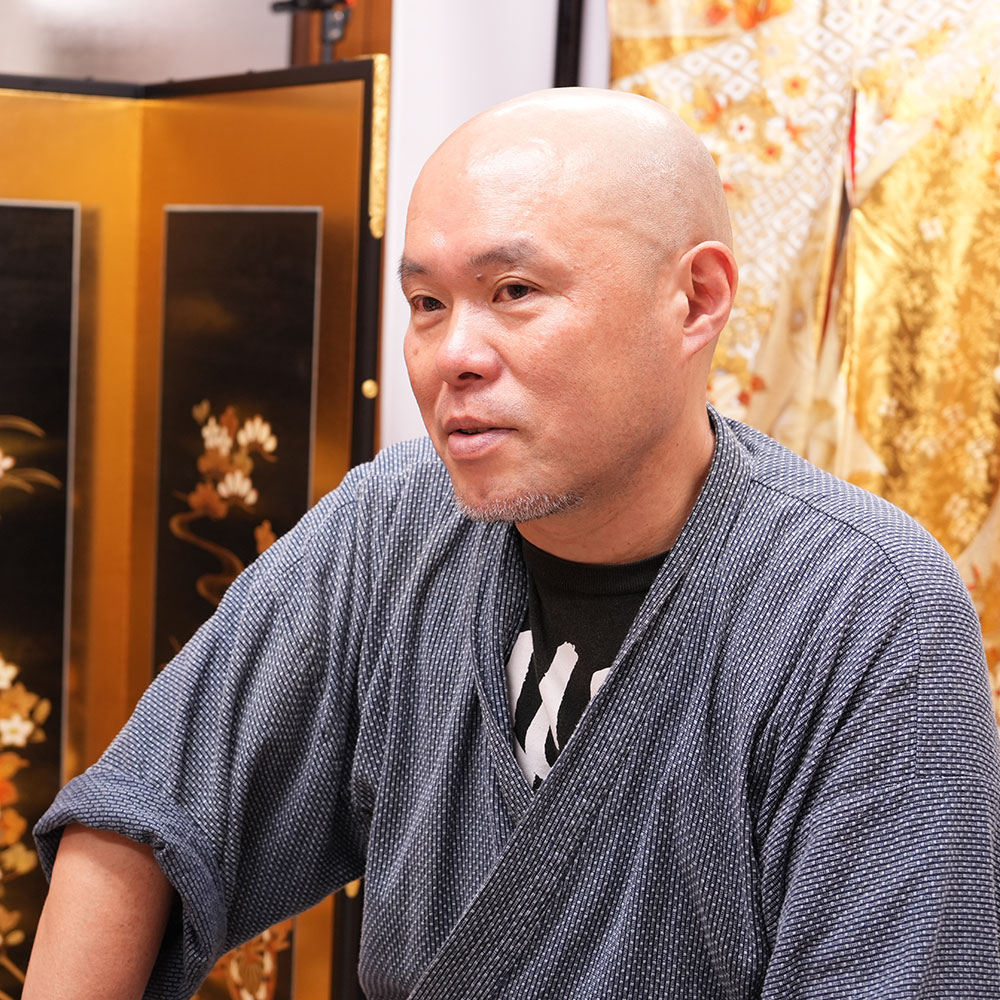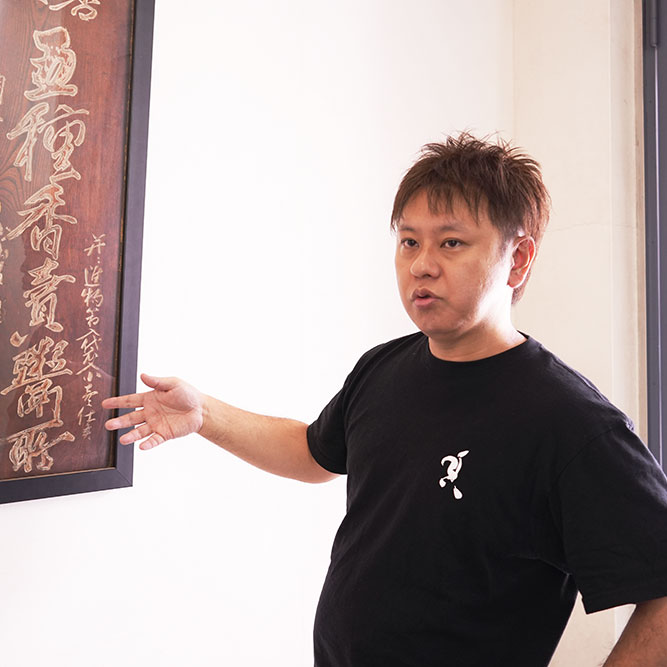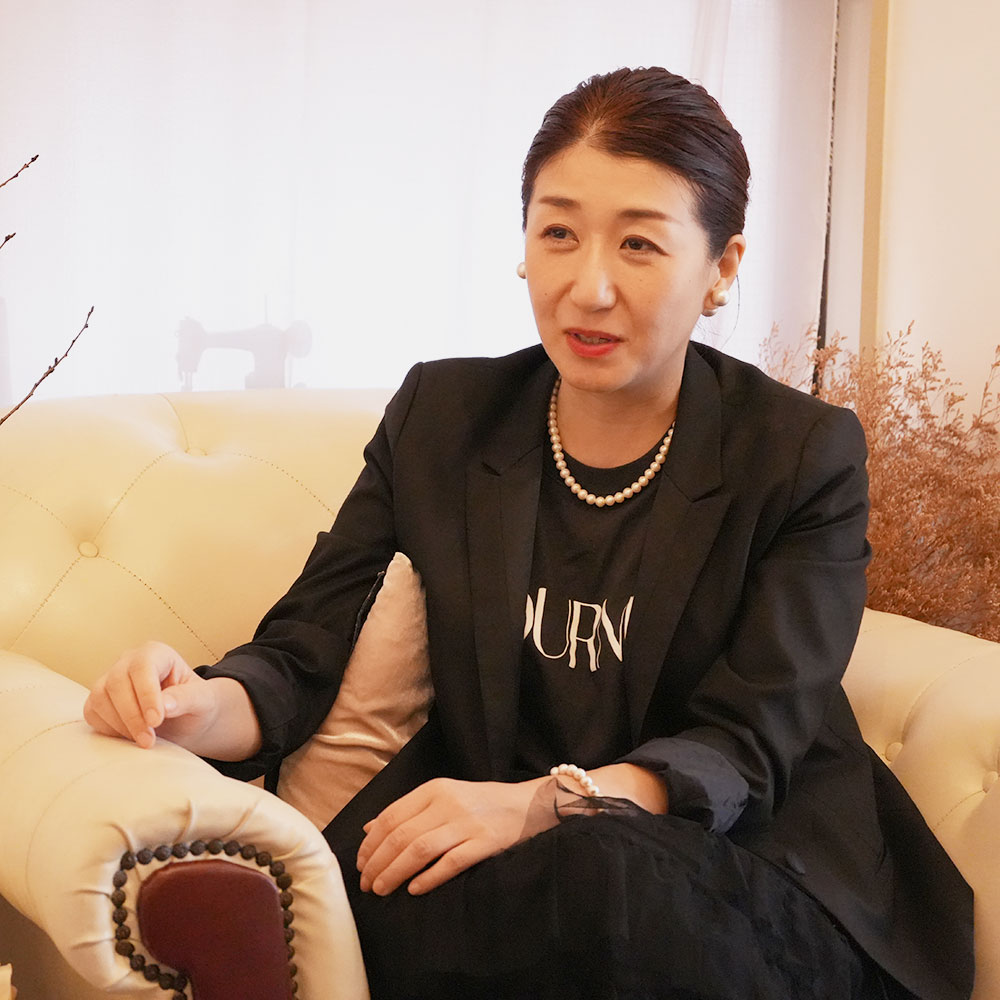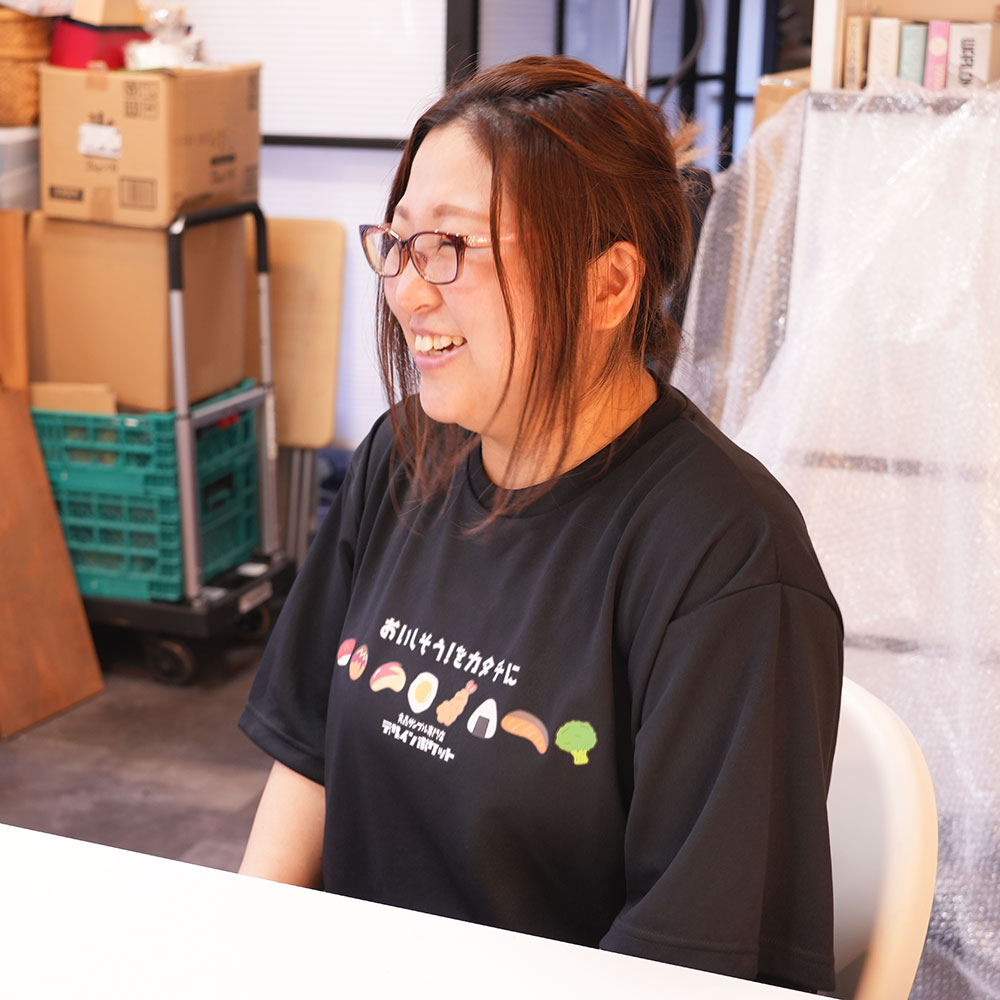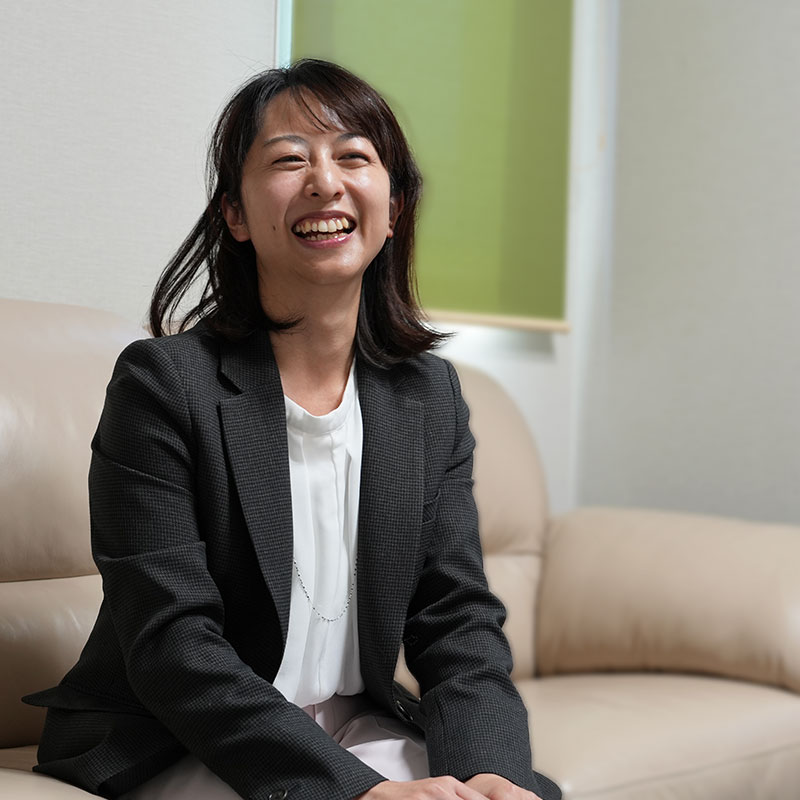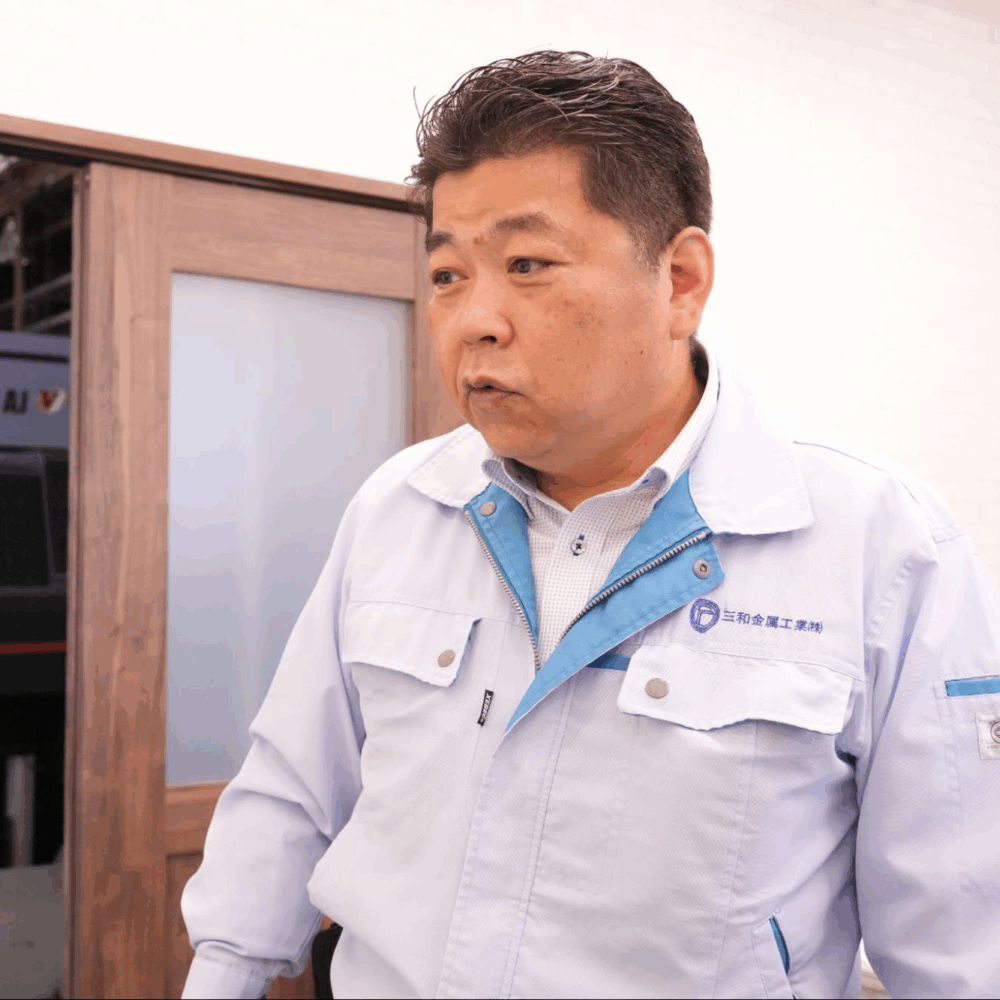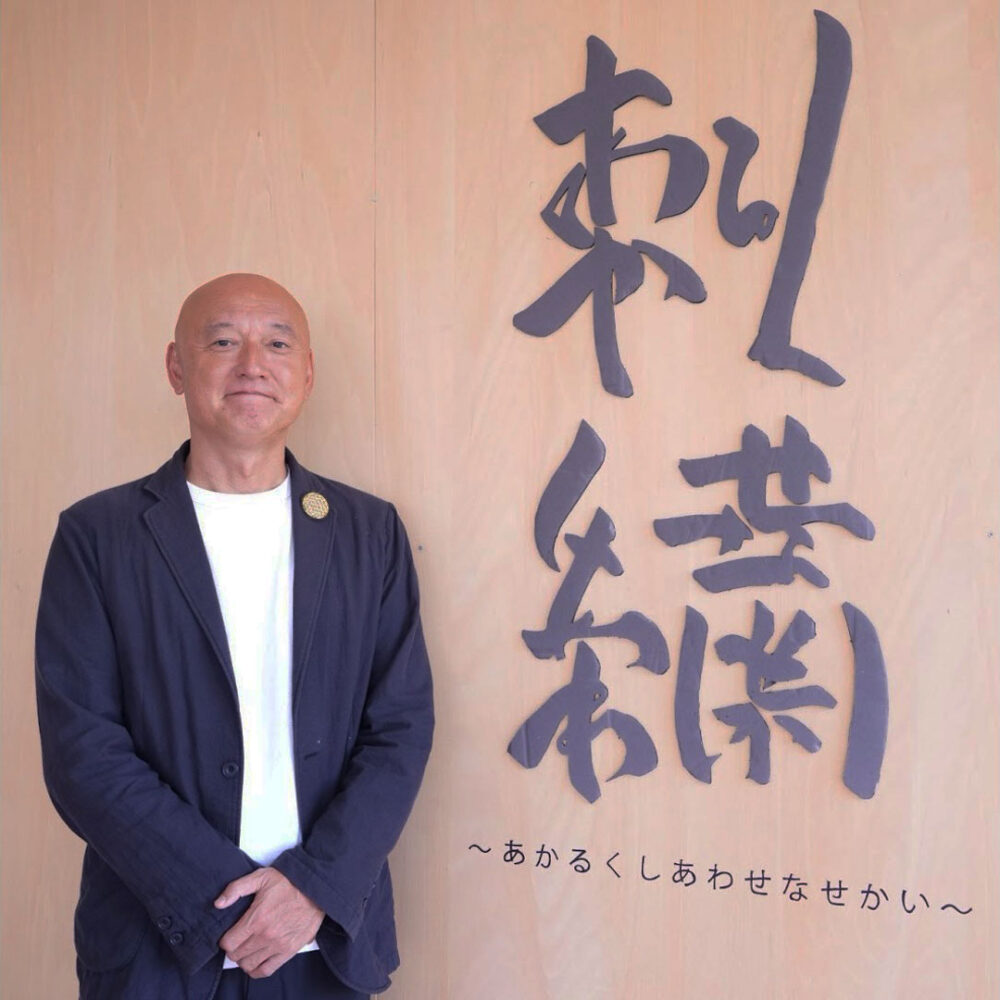The Challenger Who Carries on the Signboard Culture of Dōguya-suji in Osaka
- Other manufacturing
- town planning
- Connecting with People
Osaka
Domolabo: Bridging Tradition and Innovation in the Dōguya-suji Shopping Street with Over 100 Years of History
In the Dōguya-suji Shopping Street (Namba), which boasts over a century of history, domolabo (based in Namba, Chuo-ku, Osaka City) not only sells signboards and store supplies but also places great importance on building relationships with the local community. The company's president, Seiji Okano, holds dear the words of his mentor: “If a person loses their sense of gratitude, they cease to be human.” By incorporating both “domo” (meaning "thank you") and “labo” (for "laboratory") into the company name, Okano seeks to ensure that gratitude is never forgotten, and that he continues his humble pursuit of knowledge and improvement day by day. Okano’s passionate dedication goes beyond that of a typical businessman; he serves as a "bridge between tradition and innovation," passing on the cultural heritage of Dōguya-suji to the next generation.
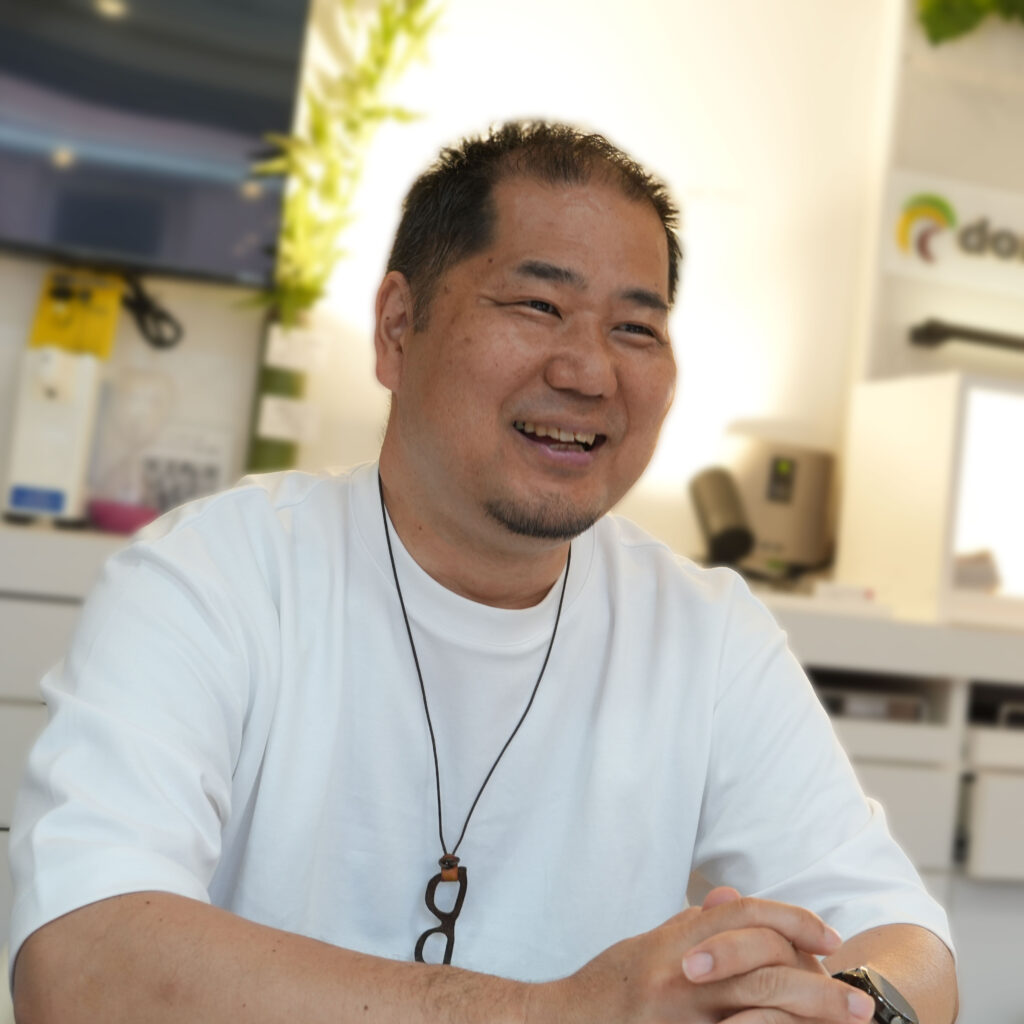
PROTAGONIST
Seiji OkanoRepresentative director
Inheriting the Craft of Signboard Artisanship
Domolabo was established on November 5, 2008, as a specialty store dedicated to signboards.
Seiji Okano, who originally worked for a trading company, was approached by the chairman of one of his clients, who asked him, “Would you like to try running a signboard business?” Without hesitation, Okano agreed to take over the business. Chairman Nakamura, a master signboard artisan, had been considering the future of his shop. Some of his family members had even suggested that it might be better to close the signboard business and convert it into a restaurant. Just at that time, Okano’s decision to take over came like a comet, and the chairman was overjoyed to have found such a successor.
Typically, business successions occur within family members, so the entry of an outsider surprised many and created a buzz in the shopping district. Okano made efforts to collaborate with local residents by joining the youth committee and participating in board meetings.
The Dōguya-suji Shopping Street offers a wide range of tools necessary for starting a business, such as kitchenware, dishes, aprons, and glasses. The street also carries an air of nostalgia, reminding visitors of the retro charm of the Showa era.
Seiji Okano, inheriting the founder’s spirit, sought to bring fresh ideas to the business while maintaining careful and thoughtful communication with many of his customers. About six years later, Chairman Nakamura passed away.
A Positive Outlook Born from the Brink of Death
Seiji Okano took on the challenge of motorcycle racing during his high school years. However, after starting his career at the age of 19, he was suddenly struck by a severe illness—bone tumors. His legs lost strength, and he became unable to walk, leading to an emergency hospitalization. He endured the severe side effects of chemotherapy, including headaches, nausea, and body convulsions, all while confronting the possibility of death.
In the face of these trials, Okano shifted his mindset and adopted a positive outlook, thinking, “Just being alive is a great blessing.” With this new perspective, he decided, “If I’m going to die anyway, I want to see not just Japan but the world.” This led him to embark on a life-changing adventure. Within just six months, he saved one million yen and set off on a one-year working holiday to Australia.
Looking back on that time, Okano recalls, “After overcoming the fear of death, there was nothing left for me to fear. In a foreign land where I didn’t speak the language, with no one to rely on, I had to judge whether the people I met were good or bad. I acted solely on my instincts. I worked, of course, but I also took on many challenges, like bungee jumping, running a full marathon, skydiving, scuba diving, and even crossing the desert. There were times when I got sick due to poor eating habits, but it taught me the importance of managing my health.”
After returning to Japan, Okano lived in Hokkaido for a time to explore the beauty of Japan. He then worked in various fields, including the retail industry, travel industry, trade companies, and product development. Eventually, he entered the signboard industry in Osaka. These adventures and career experiences had a significant impact on the establishment of his business later on.
The Joy of Expressing a Store’s Identity Through Signboards and the Passion to Preserve Culture
While Seiji Okano was working at a trading company, he often visited the Dōguya-suji Shopping Street to procure and sell signboards, where he met Chairman Nakamura and developed a close relationship with him. Okano not only resonated with the chairman’s entrepreneurial spirit but also began to cultivate his own sense of creativity.
“Signboards are not just displays; they represent the identity of a store. They are like giving shape to the soul of a shop. Through signboards, we express the individuality of each store,” Okano explains. This way of thinking forms the foundation of his creative approach and his customer-centric business style.
A large portion of the signboards sold by domolabo are original products. While the store operates in a retail format, its position is closer to that of a manufacturer. The company primarily develops three brands: “Unryu,” “Shin Retro,” and “Bael.”
The first brand, “Unryu,” features a design where traditional Japanese paper patterns are embedded into acrylic sheets. The signboards can be illuminated from within with warm, incandescent light, giving them the look and feel of traditional Japanese lanterns (andon).
The “Unryu” brand, in particular, offers a wide range of products and has gained popularity overseas. Through its website, domolabo sells its products not only across Japan but also internationally.
“We develop brands, but in reality, many of our ideas come from our customers. We start by listening to their requests and then bring those ideas to life. If the product turns out well, we refine it, assign it a product number, and make it a standard item. While we follow the basic PDCA (Plan-Do-Check-Act) cycle in business, domolabo also focuses on being deeply rooted in the local community. We never forget our sense of gratitude and steadily move forward,” Okano explains.
After entering the Dōguya-suji Shopping Street, Okano noticed a concern. While domolabo thrives thanks to the existence of Dōguya-suji, the rise of online shopping and home improvement stores has begun to erode the traditional tool culture, putting even signboard products at risk.
“Tools are part of our culture, and Dōguya-suji has the responsibility to protect those irreplaceable tools. Could we, as a community, work together to preserve what people and tools have built over time—things that should never be lost—for future generations? I’m deeply worried about the future of Japan and the state of retail,” he says.
It was from this concern that the “Kizunagu” brand was born.
Okano is embarking on a long and challenging journey with the goal of creating countless innovative ideas, not just to compete on price, but to use branding as a way to pass down the culture and craftsmanship of Dōguya-suji to the next generation.
This challenge is far from easy. There are numerous hurdles, including the difficulty of building a strong brand, gaining the understanding and support of the entire shopping street, and striking the right balance between product development and pricing. Okano admits that he has faced moments where he almost gave up.
“But it would be such a waste,” he says. “The culture of this street, the craftsmanship of the artisans, the connections with our customers—we can’t afford to lose any of that.”
Thanks to Okano’s resilience and passion, word of mouth has spread, and now even the media is starting to take notice. His vision and actions are clearly beginning to bear fruit.
A Vision for the Future
Seiji Okano’s journey is still only halfway complete, but his eyes are firmly set on a clear vision for the future. “I want to continue specializing in our products and put more effort into developing original items. I also want to share this culture with all of Japan and, eventually, the world,” he says with determination.
Okano’s ambitions extend beyond Japan, with plans to utilize cross-border e-commerce and participate in international exhibitions. His goals of “bringing customers’ ideas to life” and “revitalizing the town alongside the local community” are all born from the connections he values with people.
“If a person loses their sense of gratitude, they cease to be human.”
This is the philosophy passed down from his mentor, and it remains the driving force behind Okano’s efforts. His challenges continue today in Dōguya-suji, and his passion will no doubt ignite the hearts of many, inspiring new allies and future challengers in the days to come.
INFORMATION

domolabo Co., Ltd.
"With the words of my mentor, 'If one loses the feeling of gratitude, one ceases to be human,' in mind, we included 'Domo' and 'Labo' in our company name, domolabo, to remind ourselves to never forget gratitude, to remain humble, and to continue exploring daily with a diligent spirit.
We are committed to the essence of domolabo, which is to continuously pursue making our clients say 'thank you' through face-to-face dialogue and communication, fulfilling their requests (ideas). Through our signboards and store supplies, we aim to support stores across Japan and around the world.
From Doguyasuji in Osaka, we believe it is our mission to bring amazement to the world."
- Founded in
- 2008/11/5
- Website
- https://domolabo.co.jp/
- Writer:
- GOOD JOB STORY 編集部





